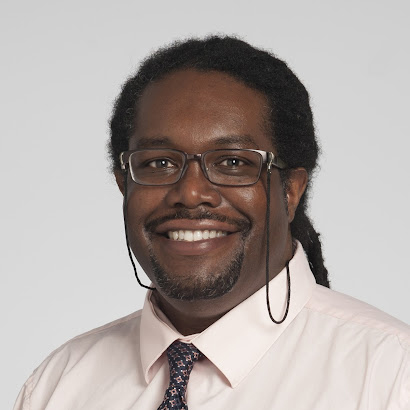‘I didn’t let the world steal my imagination.’
Learn how to power through adversity. That’s advice from Dr. Jason Ross, manager of graduate programs in molecular biology at the Cleveland Clinic’s Lerner College of Medicine. Ross, who holds a Ph.D. in regulatory biology, has overcome a lot of setbacks in his life.
Did you have a mentor?
I had multiple mentors, from junior high school all the way up through today, and I find myself multiple times during the day thinking about how these people who had been in similar situations would handle whatever it is. I find especially my graduate school mentor, the way I literally can hear her voice in my head, things that she’s told me, ways to approach the world, how to interpret things.
What advice do you have for kids exploring the world and discovering what they’re interested in?
I didn’t let the world steal my imagination. I try not to go out too quickly. I try to maintain my fascination about things that I didn’t understand instead of just putting them in a pile of things I never know and carrying on with my life.
Ask questions, challenge the things you’re told. Those qualities are the beginning of a scientific mind.
If a path is not linear, most students will quit. And one of the most important things about science, probably about life in general, is that the No. 1 determinant of your success is how you deal with adversity, when things are not going well. Are you able to be resilient? Are you able to stick through it? Are you able to keep going, even when you fall off completely? Are you able to climb back up? I know that sounds trite, but it’s really true.
What does STEM mean to you?
STEM is where all of the jobs are going. This is where the future of the world is dependent. You can see it in everyday life, especially with what we’ve been dealing with in the pandemic. You can see in everyday life how much the world really depends on people who have expertise in these fields.
What advice do you have for young people to help them discover their interests?
Don’t let the world steal your imagination. Ask questions, challenge the things you’re told. Those qualities are the beginning of a scientific mind. After graduating with bachelor degrees in biology and psychology from Toledo (I got a ‘full ride’ there), I moved back to Cleveland to take care of things at my mother’s house while she was in Tanzania, East Africa for missionary work. I worked a few jobs and eventually went to graduate school and worked in a lab at Cleveland State. For financial reasons, I left the program to work at the deli counter at BJ’s Wholesale. A doctor in the program called me out of the blue one day to let me know I could rejoin the program with new fellowship money they had just received.
It was quite a long road to finish my program and my dissertation, but I feel a lot better that I finished. I think if the path is not linear most students will quit.
One of the most important things about science, and probably about life in general, is that the #1 determinant of your success is how you deal with adversity, when things are not going well. Are you able to be resilient? Are you able to stick through it? Are you able to keep going, even when you fall off completely?
What does STEM mean to you?
STEM is where all of the jobs are going. This is where the future of the world is dependent. You can see it in everyday life, especially with what we’ve been dealing with in the pandemic.
There is also a thrill working in research, when you get a piece of data that no one else on the planet knows. It’s super powerful and exciting.





Comments are closed.